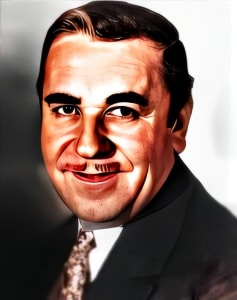 Adolph Lestina, born on February 26, 1861, in the bustling metropolis of New York City, marked his path in the nascent days of American cinema with a versatile acting career.
Adolph Lestina, born on February 26, 1861, in the bustling metropolis of New York City, marked his path in the nascent days of American cinema with a versatile acting career.
His journey in the film industry unfolded during the silent film era, a time when the medium was still in its infancy, requiring actors to convey emotions, stories, and character depth primarily through nonverbal expressions, facial nuances, and physical movements. It was in this era that Adolph Lestina found his niche, leaving an indelible mark on the burgeoning world of motion pictures.
Lestina’s ability to captivate audiences and elicit emotions without the aid of dialogue was a testament to his profound acting prowess. His performances demonstrated his knack for engaging with complex characters and emotionally charged storylines, ensuring that he became a recognized and respected figure in early cinema.
One of the notable milestones in Adolph Lestina’s cinematic journey was his role in “ The Love Flower,” a 1920 silent film directed by none other than D.W. Griffith, a pioneering director known for his contributions to the art of filmmaking. This film explored themes of love and sacrifice, and Lestina’s involvement played a pivotal role in deepening the emotional resonance of the story.
“ The Love Flower” was just one of several films in which Adolph Lestina showcased his talents. Throughout his career, he demonstrated his ability to breathe life into an array of characters across various genres and storylines. His filmography offered a glimpse into the diversity of his acting skills, spanning dramas, comedies, and character-driven roles that highlighted his adaptability as an actor.
What made Lestina stand out in this era was his commitment to his craft and his aptitude for embracing the ever-evolving film industry. As silent cinema gave way to the advent of sound in motion pictures, many actors faced the daunting challenge of transitioning to a new era. Adolph Lestina, however, exhibited his resilience and versatility by successfully navigating this cinematic evolution.
His ability to seamlessly adapt to this monumental shift in the film industry emphasized his unwavering commitment to the art of acting. Lestina’s career spanned a crucial period of transformation, showcasing his dedication and passion for his craft as well as his ability to thrive in an ever-changing landscape.
Adolph Lestina’s contributions to early cinema remain a testament to his talent, adaptability, and enduring legacy in the annals of film history. While his name may not be as widely recognized today as some of the leading actors of his time, his performances and his ability to adapt to the changing landscape of the film industry serve as a valuable reminder of the early pioneers who laid the foundation for the cinematic art form we cherish today. Adolph Lestina’s work in “ The Love Flower” and beyond continues to inspire and resonate, reminding us of the enduring power of silent cinema and the performers who brought its magic to life.




